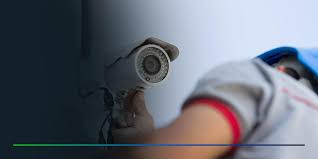In today’s rapidly evolving world, security camera installation markham have become an integral part of our daily lives. From monitoring public spaces to enhancing home security, these devices play a crucial role in safeguarding people, property, and assets. Let’s delve into the evolution, types, benefits, and controversies surrounding security cameras.
Evolution of Security Cameras
Security cameras have come a long way since their inception. The first closed-circuit television (CCTV) system was installed in Germany in 1942 to monitor the launch of V-2 rockets. However, it wasn’t until the 1960s that CCTV technology became more widely available and affordable.
The 1990s marked a significant milestone with the introduction of digital video recording (DVR) technology, which replaced traditional analog tapes. This advancement not only improved video quality but also made it easier to store and retrieve footage.
In recent years, the rise of IP (Internet Protocol) cameras has revolutionized the industry. These cameras can transmit video over the internet, allowing for remote monitoring and access from smartphones and computers.
Types of Security Cameras
- Dome Cameras: These cameras are mounted on the ceiling and are commonly used in indoor surveillance. They offer a discreet design and are often vandal-proof.
- Bullet Cameras: These cameras are cylindrical in shape and are suitable for both indoor and outdoor use. They are easy to install and are often weatherproof.
- PTZ Cameras: PTZ (Pan-Tilt-Zoom) cameras can pan, tilt, and zoom to provide a wide range of coverage. They are commonly used in large areas such as parking lots and stadiums.
- Wireless Cameras: These cameras transmit video wirelessly, eliminating the need for cables. They are easy to install and can be placed in locations where running cables is difficult.
- Thermal Cameras: Thermal cameras use heat signatures to detect movement, making them ideal for low-light or no-light environments.
Benefits of Security Cameras
- Crime Deterrence: The presence of security cameras can deter criminals from committing crimes, as they are aware that they are being monitored.
- Evidence Collection: Security cameras can provide crucial evidence in the event of a crime, helping law enforcement agencies in their investigations.
- Remote Monitoring: With the advent of IP cameras, users can remotely monitor their property from anywhere in the world using a smartphone or computer.
- Employee Productivity: Security cameras can be used in the workplace to monitor employee productivity and ensure adherence to company policies.
- Traffic Monitoring: Security cameras are often used for traffic monitoring and management, helping to improve road safety and reduce congestion.
Controversies Surrounding Security Cameras
Despite their benefits, security cameras have also sparked privacy concerns. Critics argue that constant surveillance infringes on individuals’ privacy rights. Additionally, there are concerns about the potential misuse of footage, such as unauthorized access or data breaches.
In conclusion, security cameras have evolved into sophisticated devices that play a crucial role in maintaining safety and security. While they offer numerous benefits, it is essential to address privacy concerns and ensure that their use is regulated to protect individuals’ rights.

